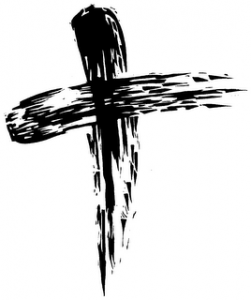Happy Ash Wednesday

"We are travellers…not yet in our native land" – St. Augustine

 Yesterday was the first guest post we’ve had here on this blog. I’m hoping that it’ll be the first of many to come. If you have an idea for an article which you would like to have published here, please contact me and we can try and work something out.
Yesterday was the first guest post we’ve had here on this blog. I’m hoping that it’ll be the first of many to come. If you have an idea for an article which you would like to have published here, please contact me and we can try and work something out.
So yesterday, in preparation for Lent, I invited my good friend Dominic to speak to us on the subject of fasting. He gave us an introduction to the subject, spoke about some of the examples we have from Sacred Scripture and discussed the motivation behind fasting.
Today he’s going to offer some concluding thoughts…
We need to go into fasting with a positive attitude, knowing that fasting is the will of God and is rewarded (Matthew 6:17-18). Also since our body is the temple of the Holy Spirit (1 Corinthians 6:19-20), it is entirely appropriate for us to benefit physically as well as spiritually from fasting.
Pray for strength and take things one step at a time. Guard against spiritual attack. The Devil doesn’t like fasting and he will try to undermine you. You may feel doubts, fear, loneliness or temptations. Stand firm knowing that God loves you and rewards those who diligently seek him (Hebrews 11:6).
 Today I’m delighted to welcome Dominic Meigh to the Restless Pilgrim website.
Today I’m delighted to welcome Dominic Meigh to the Restless Pilgrim website.
Dominic is a good friend of mine from England. He lives in the town of Cheltenham with his wonderful wife Mary. He is an extremely knowledgeable Catholic and an active member of his parish’s music ministry. This man knows far more about liturgical chant than is probably healthy…
This is the first guest post we’ve had here at Restless Pilgrim and I’m hoping that it’ll be the first of many to come. If you have an idea for an article which you would like to have published here, please contact me and we can try and work something out.
With Lent only a few days away, Dominic will be helping us prepare for it by speaking to us on a subject intimately related with this penitential season, the practice of fasting…
The Bishops of England and Wales have recently reinstated the practice of abstinence from meat on Fridays. Fasting (including abstinence) not only helps us to humble ourselves but it has also long been recognised as a powerful tool in intercession.
More and more people recognise this and are sensing God calling them to fast, particularly for ministry. But many are daunted at the prospect of going without food, fearing they cannot do it and consequently feel guilty. Fortunately, there is a more gentle way, but more on that tomorrow…

“My advice is not to inquire why or whither, but just enjoy the ice cream while it’s on your plate” – Thornton Wilder

“The place that God calls us is that place where the world’s deep hunger and our deep desire meet”
– Frederick Buechner
I know I said I wasn’t going to blog any more this month, but I found some time this lunchtime to write down a few thoughts…
 Last week at “Theology On Tap” Bernadine Carr gave a talk on the subject of The Beatitudes (“Blessed are the poor in spirit…”). In the run-up to her talk I was reminded of a devotional practice I followed years ago when I was living in Cheltenham…
Last week at “Theology On Tap” Bernadine Carr gave a talk on the subject of The Beatitudes (“Blessed are the poor in spirit…”). In the run-up to her talk I was reminded of a devotional practice I followed years ago when I was living in Cheltenham…
I found myself drawn to praying with rosary beads, but at that time I didn’t feel comfortable with praying the Marian prayers of the rosary. So what I did was to replace the “Hail Mary”s and “Hail Holy Queen”s with short passages of Scripture and pray with those instead.
An example of this is found below. It is a guide to what could be dubbed the “Kingdom Rosary” or “The Rosary of St. Matthew”.
The Kingdom Rosary (MS Word) | The Kingdom Rosary (PDF)
At the beginning of this month, in preparation for Bernadine’s talk, I began this “Kingdom Rosary” and quickly fell in love with it all over again. It’s really helpful for memorizing Scripture and it’s also much shorter than a traditional Rosary, which is ideal if I’m walking just a couple of blocks to pick up a sandwich for lunch.
If any of you end up doing one of these or have any suggested alterations, please leave a comment below
 Whether I’ve been single, dating someone or had a girlfriend, I’ve never been the greatest fan of Valentine’s Day. Too much expectation, too much pressure. But whatever your perspective on Valentine’s Day and whatever your Facebook “Relationship Status”, hopefully one of today’s videos will make you smile…
Whether I’ve been single, dating someone or had a girlfriend, I’ve never been the greatest fan of Valentine’s Day. Too much expectation, too much pressure. But whatever your perspective on Valentine’s Day and whatever your Facebook “Relationship Status”, hopefully one of today’s videos will make you smile…